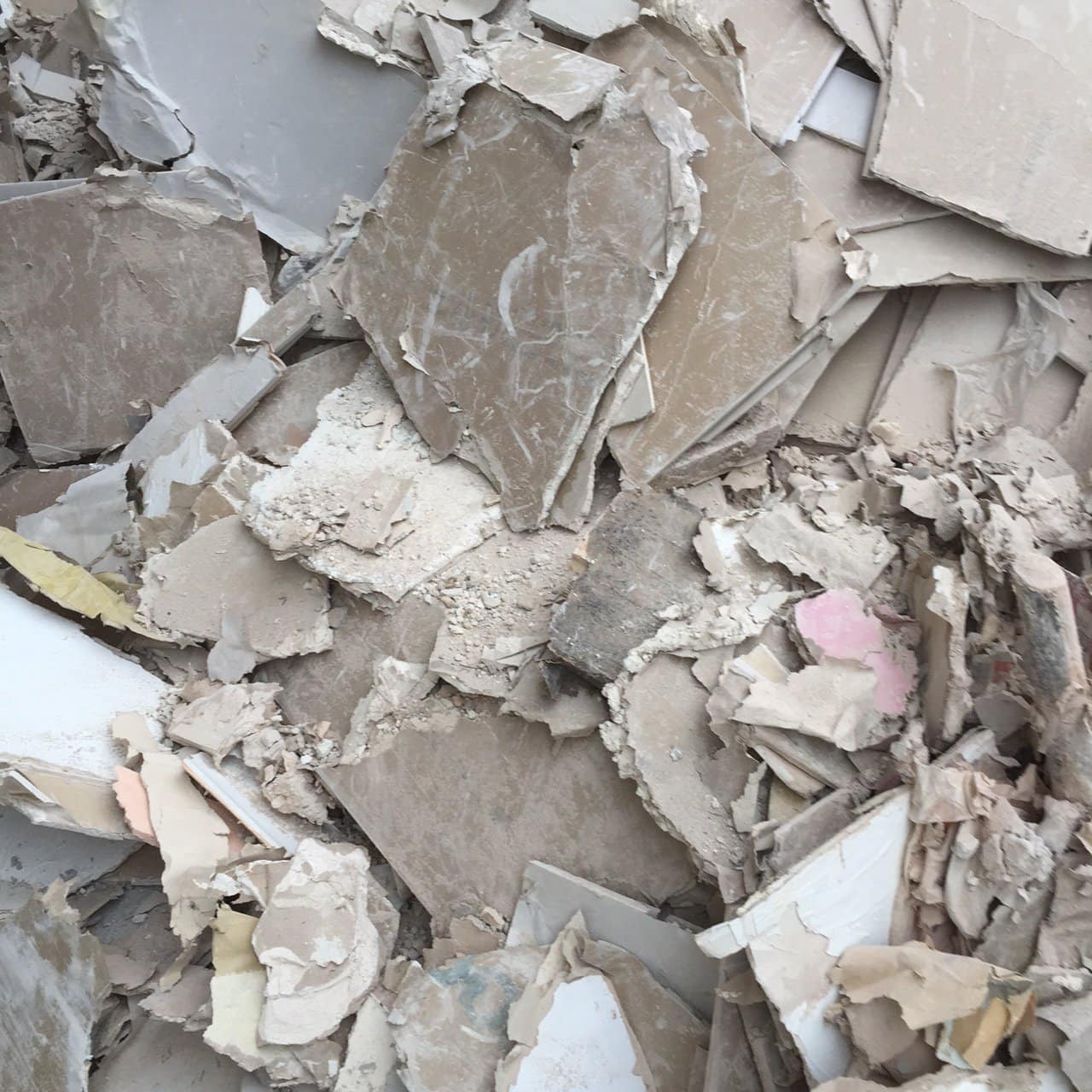It can sometimes be a little hard to make sense of the changing regulations around plasterboard disposal. But whether you are an individual, business or large-scale user of gypsum-based plasterboard, there are legal requirements around how it is disposed of.
Plasterboard is made from an inner layer of gypsum sandwiched between two outer layers of lining paper. It is the gypsum in the plasterboard that has forced the current plasterboard waste management regulations.
This is because when gypsum is disposed of alongside biodegradable wastes it can lead to the production of odorous and toxic hydrogen sulphide gas.
Why Recycle?
Legally, all loads of waste containing identifiable gypsum-based materials, such as plasterboard, should be separated for recovery or recycling wherever possible.
Although it is not hazardous waste, if gypsum is not disposed of properly it can cause problems. Therefore, regulations state that “non-hazardous gypsum-based and other high sulphate bearing materials should be disposed of only in landfills for non-hazardous waste in cells where no biodegradable waste is accepted.”
However, it is not necessary for any such materials to go to landfill at all. It is possible to recover the gypsum from the plasterboard and recycle the component parts back into raw materials which can, in turn, be used for a range of uses, including for industrial machinery and by the plasterboard industry to produce new plasterboard.
Recycling is important and advantageous because not only does it reduce the amount of waste going to landfill, it also produces a useful resalable product and reduces the amount of gypsum extraction required to supply industry.
Plasterboard Disposal for Individuals
Up until 2009, the Environment Agency had been taking a pragmatic view that separate disposal was not necessary where construction waste contained only small amounts (up to 10%) of sulphate.
However, it is now the case that even small amounts should not go to landfill with biodegradable wastes.
This means it is important to separate out your plasterboard before taking your waste to your local waste management site. Most local waste management facilities should offer a plasterboard disposal or recycling service. Check in advance which facilities in your area offer this service. Try to choose a recycling option if you can.
Plasterboard Disposal for Businesses
Small businesses that produce a large amount of gypsum-based waste should try to find a local plasterboard recycling centre. Recycling plasterboard is a practical alternative to the waste going to landfill and this is a good way to boost your business’s green credentials – and could be a valuable source of competitive advantage.
Working to avoid your waste going to landfill isn’t just better for the environment, it makes economic sense too: you can reduce your landfill tax liabilities and you can get tax credits if you send waste from landfill to be recycled, incinerated or reused.
In short: you must not mix plasterboard with other waste. Separate it out and get it recycled. The Environment Agency can fine businesses that fail to dispose of waste properly.
Plasterboard Disposal for Large Construction Projects
Larger construction projects are subject to tighter controls on their construction and demolition waste. If your construction project requires a Site Waste Management Plan, how you dispose of your plasterboard will form an important part of it.
If this applies to your business, you have a duty of care to only pass your waste on to someone who is an authorised carrier. You must have processes in place for separating out gypsum-based waste and you should try to recycle and treat as much of your wastes as possible (including gypsum-based wastes).
Disposal through Countrystyle Waste Management & Recycling
We can help you dispose of all gypsum-based products so that they are recycled. This includes:
- Plasterboard – full boards and broken parts
- Plasterboard waste –walls, floors etc.
- Pre-consumer gypsum material
- Virgin gypsum board
- Waste from rebuilds and refurbishment projects
- Industrial based gypsum products and materials
Our bespoke technology enables us to reprocess your plasterboard and gypsum waste to produce a recycled gypsum product which is BSI-PAS109 compliant.
This means it is a sustainable and truly recycled product. Our service package includes professional advice about segregating your plasterboard materials, supply of containers, collection, the reprocessing of the constituent materials back into the gypsum and fibreboard market.
Call us or send us a message to discuss your plasterboard disposal and recycling needs: 0344 880 7700
Read how we help plasterboard manufacturer Knauf

